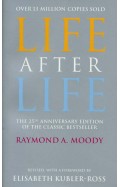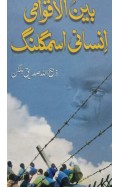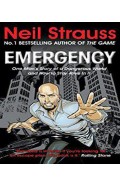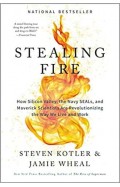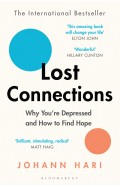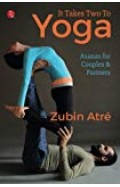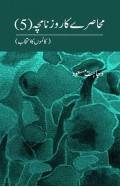- Home
- Categories
- Non Fiction
- History
- The Plague Cycle: The Unending War Between Humanity and Infectious Disease
The Plague Cycle: The Unending War Between Humanity and Infectious Disease
By: Charles Kenny
-
Rs 2,290.75
- Rs 2,695.00
- 15%
You save Rs 404.25.
Due to constant currency fluctuation, prices are subject to change with or without notice.
For four thousand years, the size and vitality of cities, economies, and empires were heavily determined by infection. Striking humanity in waves, the cycle of plagues set the tempo of civilizational growth and decline, since common response to the threat was exclusion—quarantining the sick or keeping them out. But the unprecedented hygiene and medical revolutions of the past two centuries have allowed humanity to free itself from the hold of epidemic cycles—resulting in an urbanized, globalized, and unimaginably wealthy world.
However, our development has lately become precarious. Climate and population fluctuations and aspects of our prosperity such as global trade have left us more vulnerable than ever to newly emerging plagues. Greater global cooperation toward sustainable health is urgently required—such as the international efforts to harvest a Covid-19 vaccine—with millions of lives and trillions of dollars at stake.
Written as colorful history, The Plague Cycle reveals the relationship between civilization, globalization, prosperity, and infectious disease over the past five millennia. It harnesses history, economics, and public health, and charts humanity’s remarkable progress, providing a fascinating and timely look at the cyclical nature of infectious disease.
For four thousand years, the size and vitality of cities, economies, and empires were heavily determined by infection. Striking humanity in waves, the cycle of plagues set the tempo of civilizational growth and decline, since common response to the threat was exclusion—quarantining the sick or keeping them out. But the unprecedented hygiene and medical revolutions of the past two centuries have allowed humanity to free itself from the hold of epidemic cycles—resulting in an urbanized, globalized, and unimaginably wealthy world.
However, our development has lately become precarious. Climate and population fluctuations and aspects of our prosperity such as global trade have left us more vulnerable than ever to newly emerging plagues. Greater global cooperation toward sustainable health is urgently required—such as the international efforts to harvest a Covid-19 vaccine—with millions of lives and trillions of dollars at stake.
Written as colorful history, The Plague Cycle reveals the relationship between civilization, globalization, prosperity, and infectious disease over the past five millennia. It harnesses history, economics, and public health, and charts humanity’s remarkable progress, providing a fascinating and timely look at the cyclical nature of infectious disease.
The Plague Cycle: The Unending War Between Humanity and Infectious Disease
By: Charles Kenny
Rs 2,290.75 Rs 2,695.00 Ex Tax :Rs 2,290.75
The Plague Cycle: The Unending War Between Humanity and Infectious Disease
By: Charles Kenny
Rs 2,035.75 Rs 2,395.00 Ex Tax :Rs 2,035.75
Zubin Mehta: A Musical Journey (An Authorized Biography)
By: VOID - Bakhtiar K. Dadabhoy
Rs 892.50 Rs 1,050.00 Ex Tax :Rs 892.50
Integrating Behavioral Sciences in Healthcare -
By: Asma Humayun
Rs 296.25 Rs 395.00 Ex Tax :Rs 296.25
Emergency: One man's story of a dangerous world, and how to stay alive in it
By: Neil Strauss
Rs 675.75 Rs 795.00 Ex Tax :Rs 675.75
5 Steps to Control High Blood Pressure: Is High Blood Pressure Affecting Your Health?
By: Dr. Anjali Arora
Rs 675.75 Rs 795.00 Ex Tax :Rs 675.75
Stealing Fire: How Silicon Valley, the Navy SEALs and Maverick Scientists Are Revolutionizing the Way We Live and Work
By: Steven Kotler
Rs 2,771.25 Rs 3,695.00 Ex Tax :Rs 2,771.25
Lost Connections: Why You’re Depressed and How to Find Hope
By: Johann Hari
Rs 2,965.50 Rs 3,295.00 Ex Tax :Rs 2,965.50
It Takes Two To Yoga: Asanas For Couples & Partners
By: Zubin Atre
Rs 505.75 Rs 595.00 Ex Tax :Rs 505.75
The Women's Health Big Book Of Abs: Sculpt A Lean, Sexy Stomach And Your Hottest Body Ever--in Four Weeks
By: N/A
Rs 2,800.75 Rs 3,295.00 Ex Tax :Rs 2,800.75
No similar books from this author available at the moment.
Zubin Mehta: A Musical Journey (An Authorized Biography)
By: VOID - Bakhtiar K. Dadabhoy
Rs 892.50 Rs 1,050.00 Ex Tax :Rs 892.50
The Plague Cycle: The Unending War Between Humanity and Infectious Disease
By: Charles Kenny
Rs 2,290.75 Rs 2,695.00 Ex Tax :Rs 2,290.75
The Plague Cycle: The Unending War Between Humanity and Infectious Disease
By: Charles Kenny
Rs 2,035.75 Rs 2,395.00 Ex Tax :Rs 2,035.75












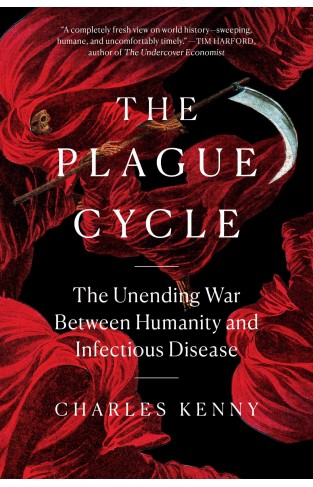


-120x187.jpg?q6)





